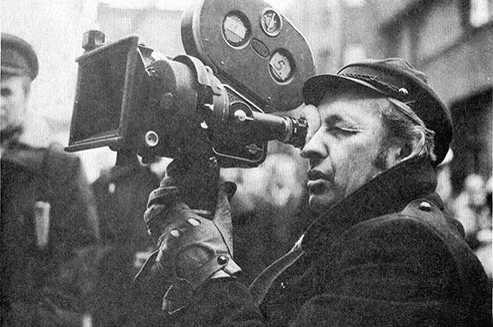On September 5, before the world premiere screening of “Walesa. Man of Hope”, Andrzej Wajda will be presented with the 2013 Persol Prize of the Venice International Film Festival – an award aimed at celebrating legends of international cinema.
In commenting on this award, the Director of the Venice Film Festival, Alberto Barbera states: “Wajda is not just the most emblematic director in post-war Polish filmmaking. He is the director who has been capable, in his work (over 50 films in his more than sixty-year career), of raising the most decisive and important questions about the history of his country, and consequently, of Europe in its entirety, inviting us to reflect on the critical relationship between personal experiences and those of an entire nation, between the anguish that often befalls individual destinies and the weight of the collective task they are called upon to accomplish”.
Andrzej Wajda won the Golden Lion for Lifetime Achievement at the 1998 Venice International Film Festival, and an Oscar for Lifetime Achievement in 2000. In 1981 he won the Golden Palm at the Cannes Film Festival for Man of Iron, in which Lech Walesa, leader of Solidarnosc, appeared as himself. This film contributed to Wajda’s being identified as the director of change in Poland. At the Venice Film Festival in 1958, Wajda presented one of his first masterpieces, Popiól i diament (Ashes and Diamonds), about the crisis and rebellion of a generation of young Poles “burned” by war, a film that established him as the key figure in his country’s New Wave. Wajda is one of the masters (Polanski, Kieslowski, Skolimowski, and Zanussi are others) who trained at the famous Lodz Film School between the Fifties and the Seventies.
Four films by Andrzej Wajda were nominated for an Oscar as Best Foreign Language Film: The Promised Land (1975), The Young Girls of Wilko (1979), Man of Iron (1981) and Katyn (2007).
Photo: Andrzej Wajda in 1974 on the set of “The Promised Land”.


